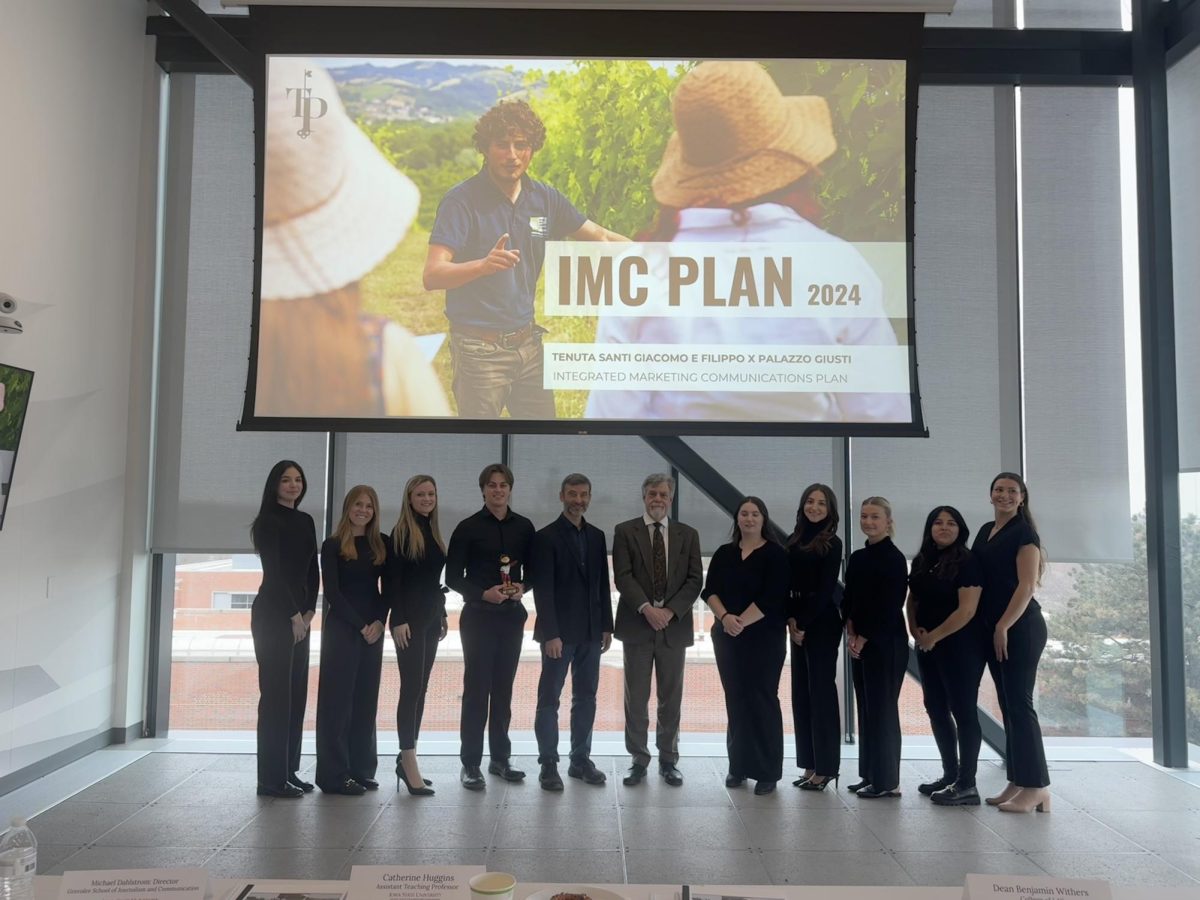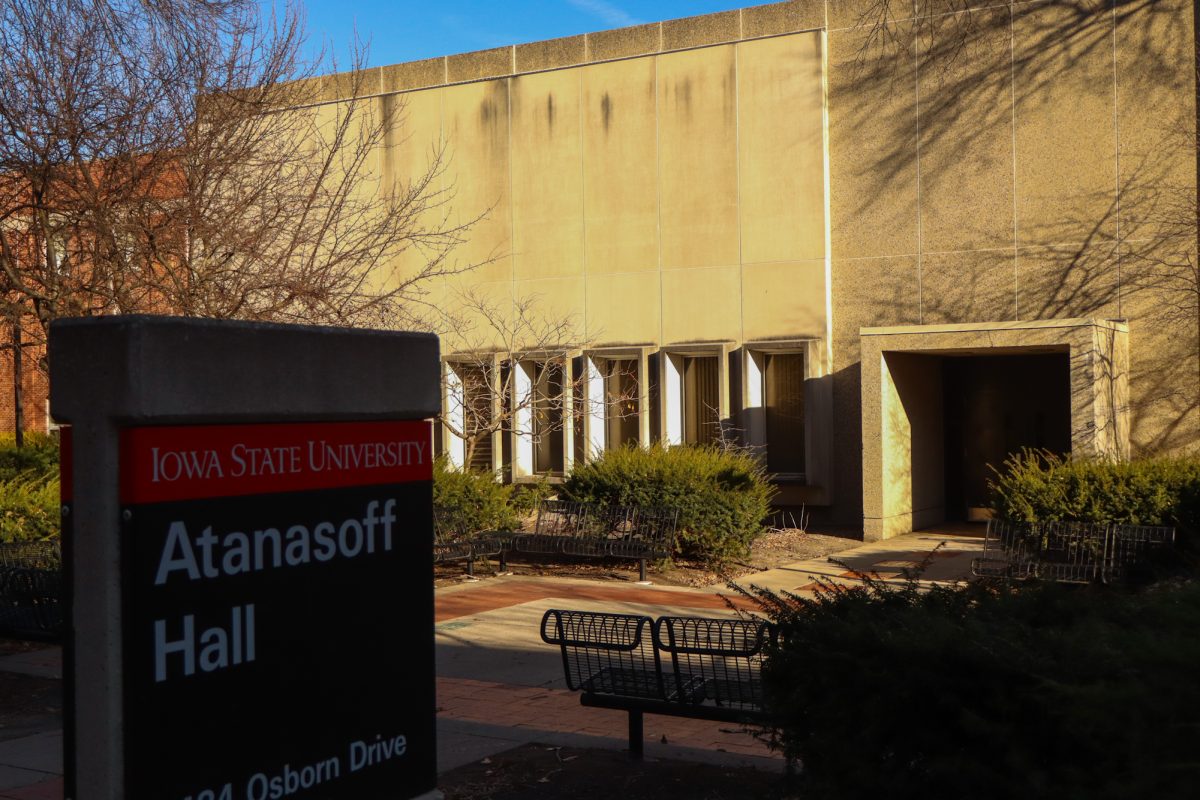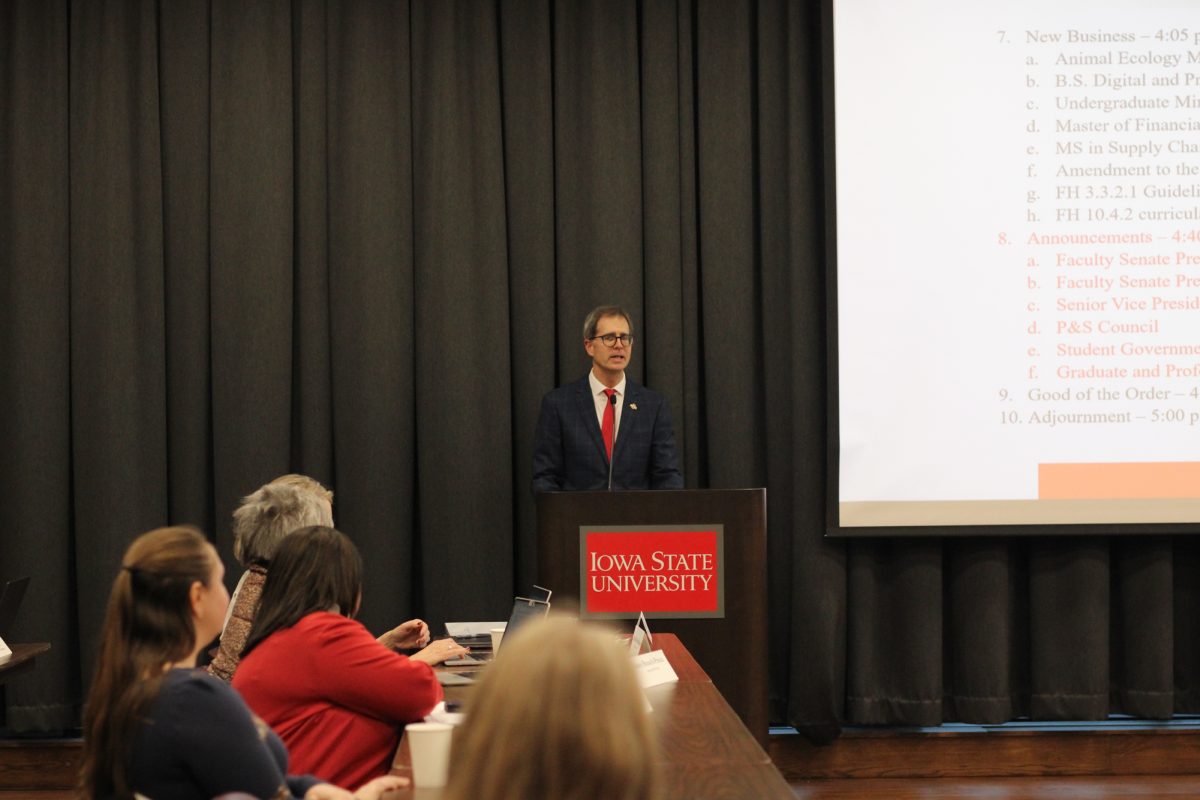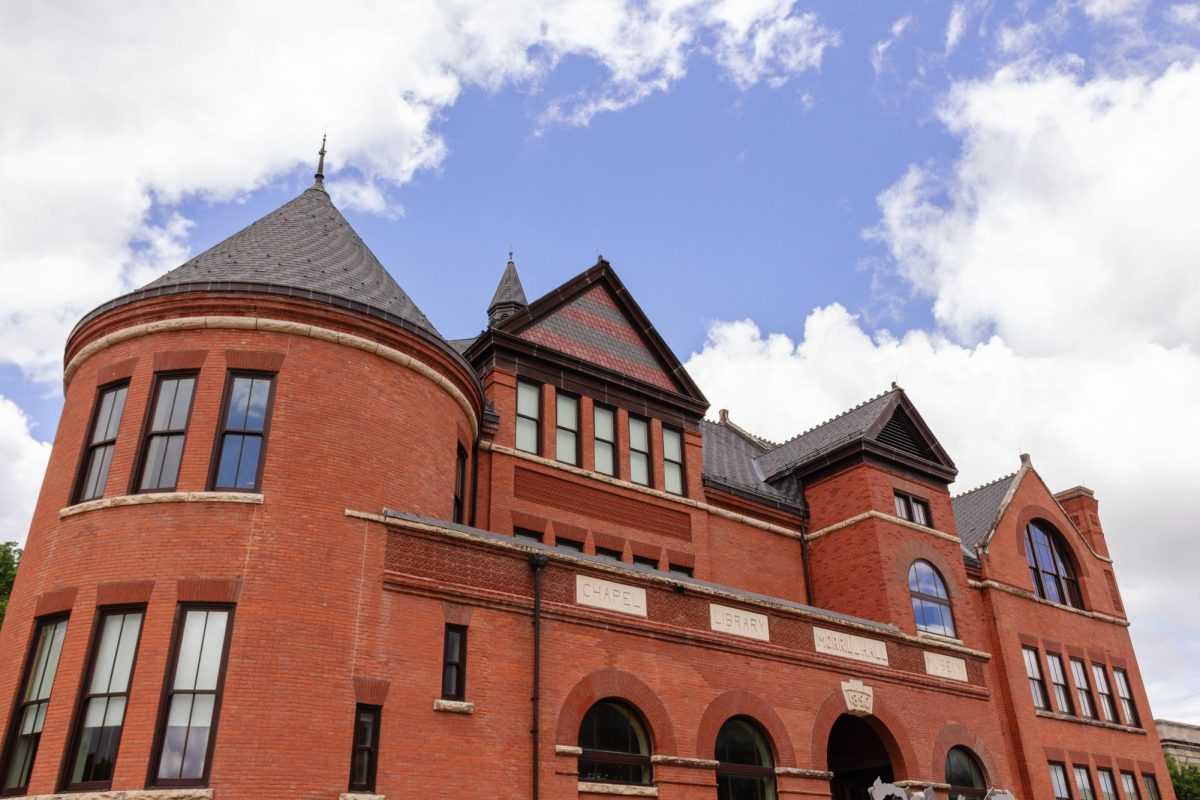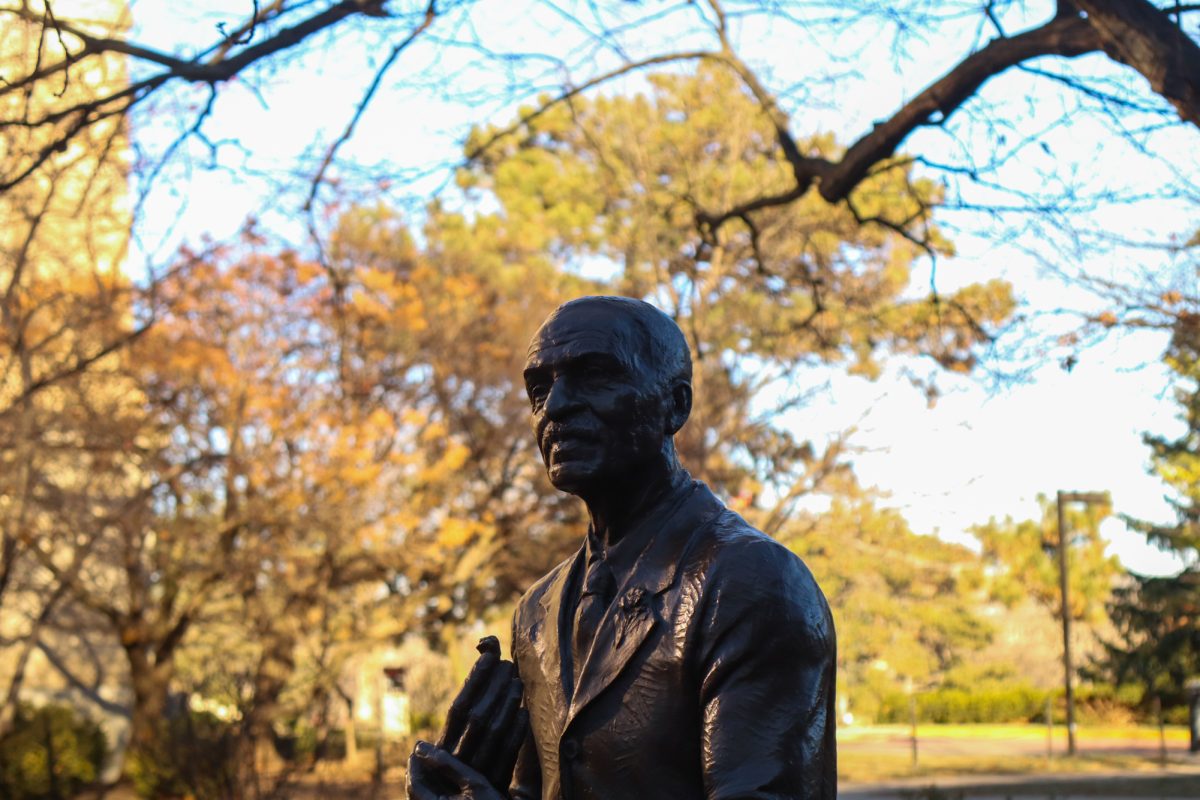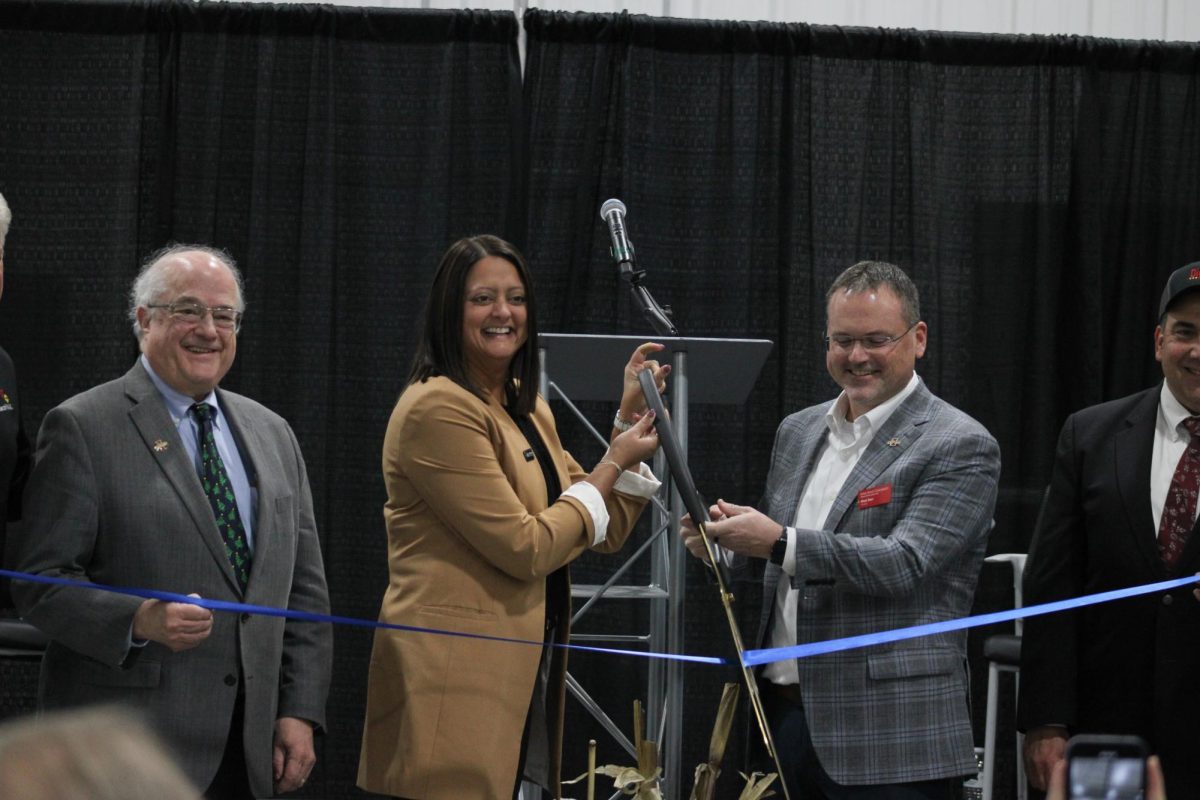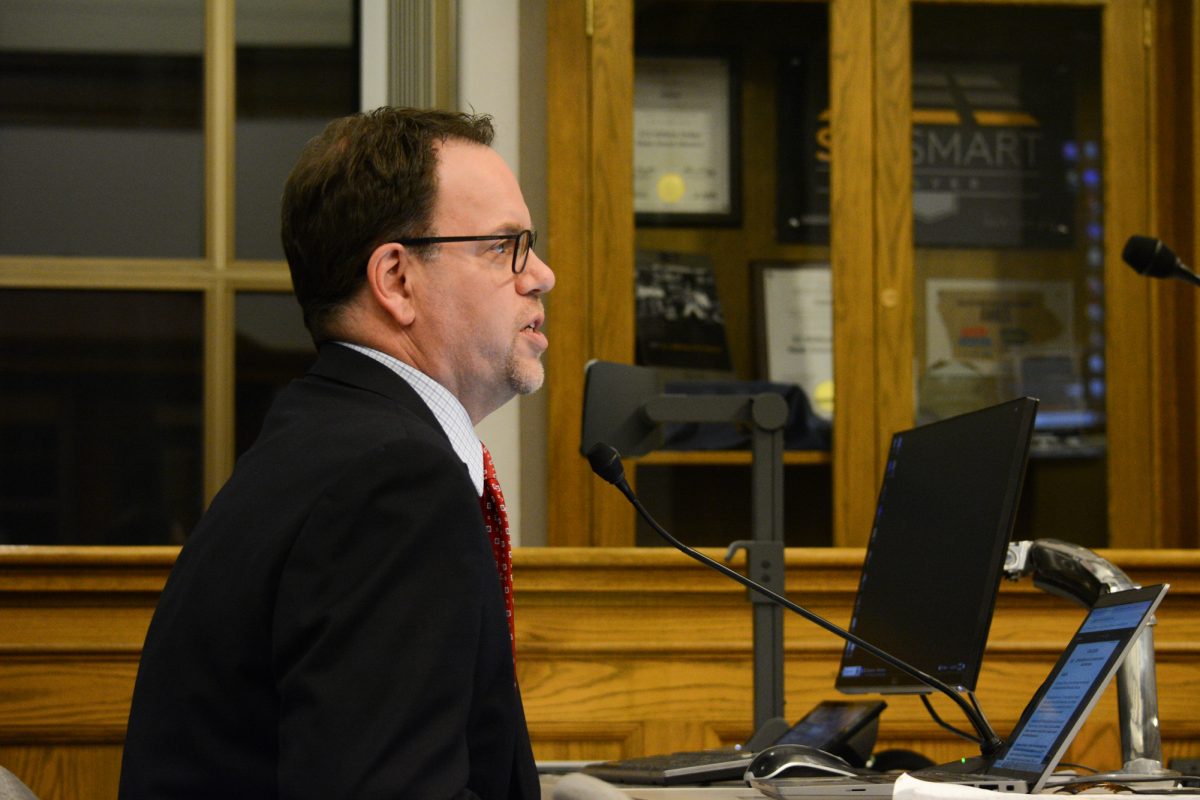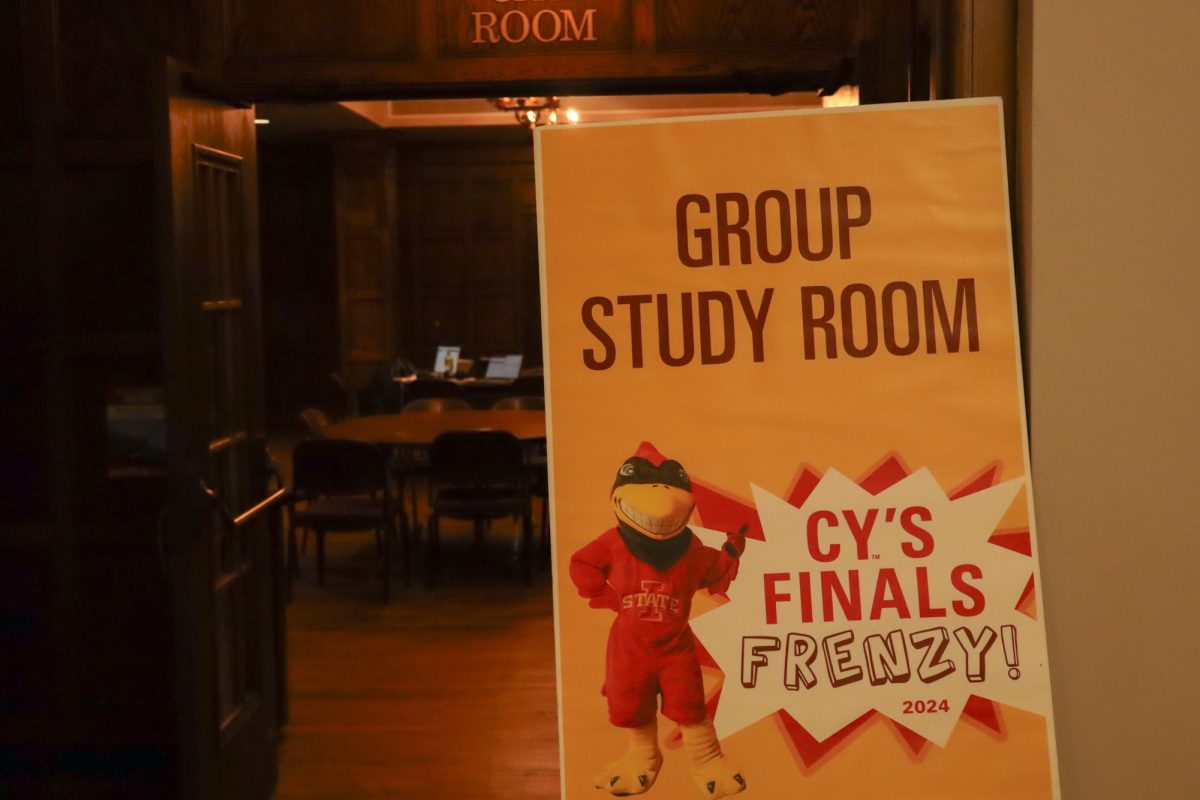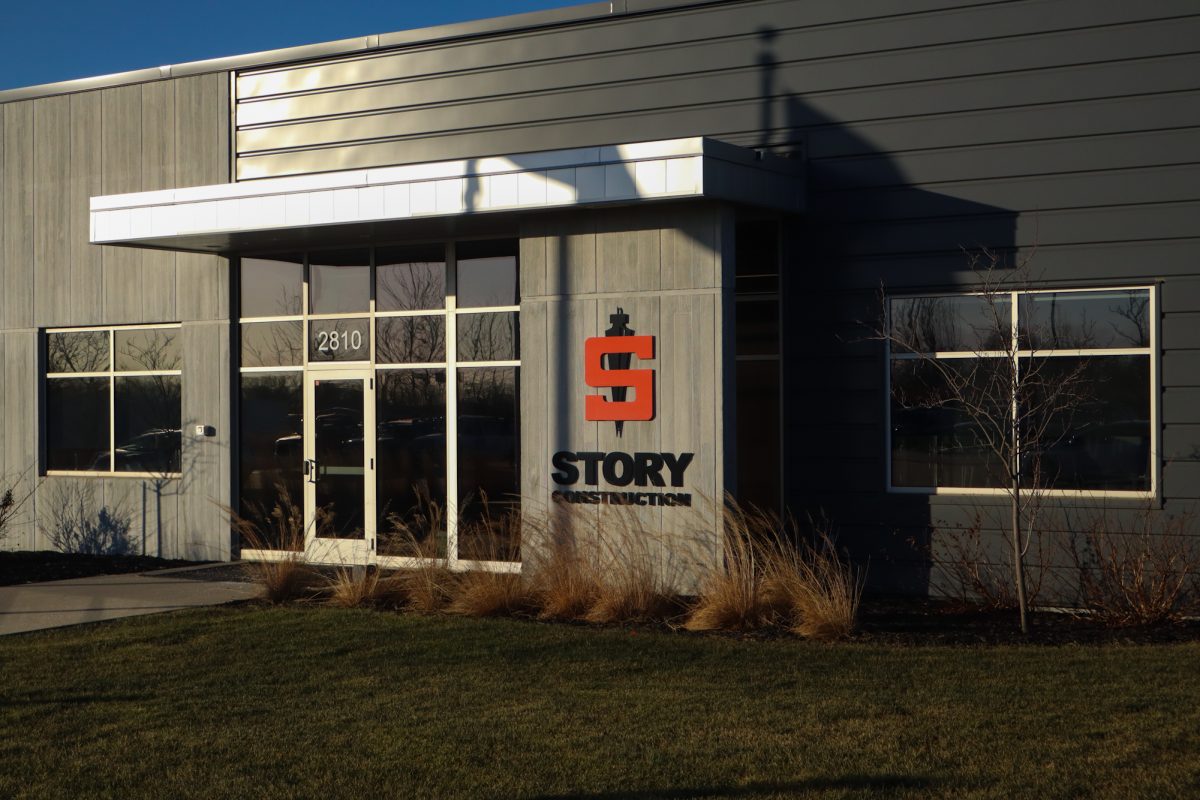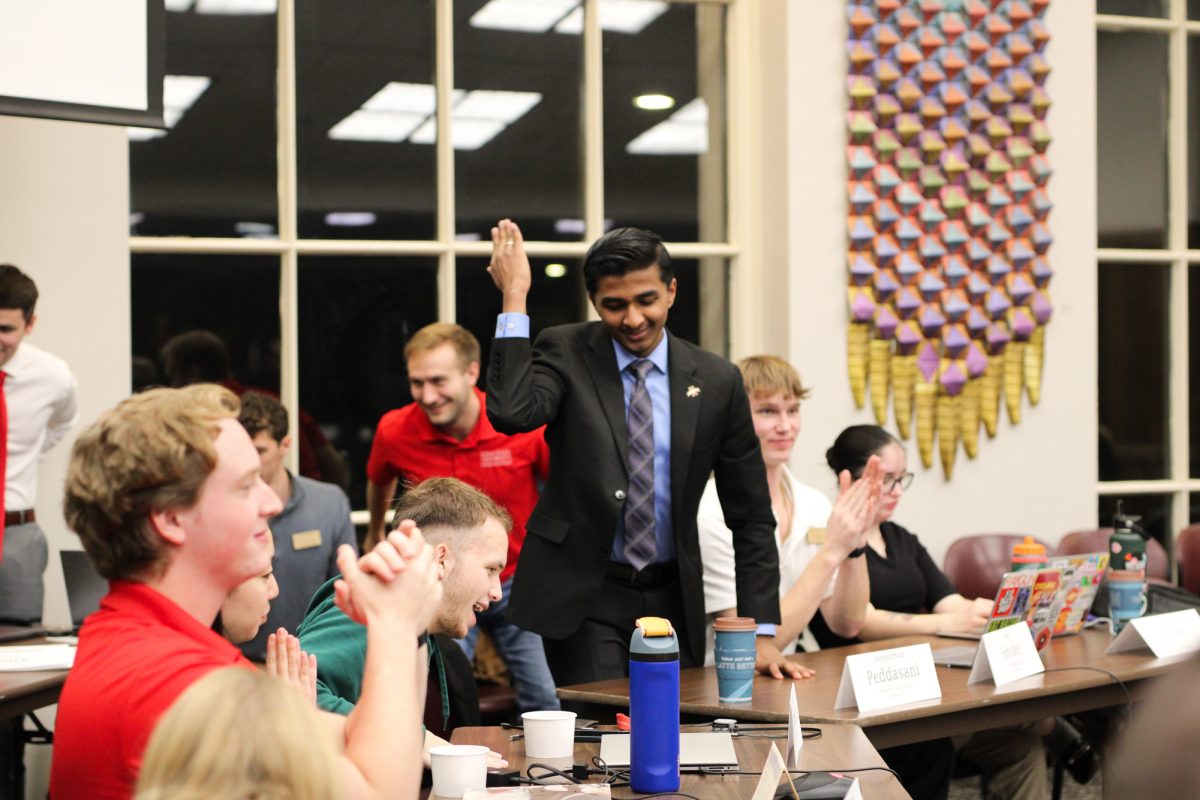Iowa State hosted four candidates over the past month, one of whom will take over the role of provost when Provost Jonathan Wickert steps down this summer.
Wickert, who will continue to teach at the university after his duties as provost, began at Iowa State as a professor in June 2012. Wickert is Iowa State’s longest-serving provost in the university’s 166-year history.
The senior vice president and provost oversee all colleges and guide academic affairs, the university library and other university branches.
Spread out over the latter half of April, each of the four candidates’ visits consisted of two days on campus, including meetings with President Wendy Winterstein, the search committee, enrollment management, members of Student Government and forums with faculty and staff.
The presentations given by each of the four candidates, all external from Iowa State, held the same title, “Innovating the Path Forward: 5 ideas that could advance Iowa State University.”
Four finalists
Elizabeth Wentz, vice provost and dean of the Graduate College at Arizona State University, was the first candidate to visit campus, emphasizing five key points: to innovate the path forward for the university, including enriching student success through curriculum changes, leading research to solve grand challenges, building on the legacy of the land grant university and focusing on areas that matter for the jobs and careers of the future.
Wentz said solving grand challenges dates back to her time as a college student mapping rainforest deconstruction.
“When I was a student at Ohio State University, I was very interested in solving significant global problems, and that sort of characterizes who I am to this day in terms of really facing large grand challenges,” Wentz said.
Wentz fielded questions regarding various issues, including the legacy of a land-grant university.
“I kind of squirm [when] I think about that because that is absolutely part of that legacy,” Wentz said. “And I try to take a positive spin out of the legacy, which is to support people who wouldn’t normally have access to college.”
Wentz added that she believes it is a priority to continue to work in that space and try to find educational opportunities to support indigenous communities.
Wentz also fielded questions about current topics affecting the university, including diversity, equity and inclusion (DEI), support for higher education from the Iowa legislature and technological advances threatening the future job market.
Eric Barker, dean of pharmacy and acting associate provost for graduate programs at Purdue University, visited campus second, sharing his vision for Iowa State, which included focusing on “future-proof” curricula.
Barker emphasized designing course delivery for the current generation of students and adapting to their learning styles, especially in order to boost class attendance.
Barker also said he wanted to foster DEI at Iowa State by reaching underrepresented and underserved populations in recruitment and diversifying enrollment to stabilize enrollment.
“We need to ensure that our graduate programs are not reliant on just one or two major countries for enrollment,” Barker said. “That vulnerability will burn us at some point if there is a significant geopolitical event.”
Barker also touched on the role of civic responsibility for the U.S. Constitution education, a topic the Iowa Legislature has recently pushed.
“I want us to make sure that we’re respectful of the cultures that come to us,” Barker said. “And so we have, like you, a very large international student population. They come to us as undergraduates, even, and I’m not always 100% sure that forcing them to learn about civic responsibility, or the U.S. Constitution, isn’t necessarily our role in higher education.”
Barker emphasized that modeling civic responsibility and helping students understand its significance is important.
Jason Keith, dean of the Mississippi State College of Engineering, prioritized being a preeminent land-grant institution, forming innovative solutions such as supporting salaries of professors, expanding and more clearly defining promotion tiers for Iowa State staff and enhancing Iowa State’s education experience through a variety of ways – including incentivizing interdisciplinary research.
Keith also emphasized catalyzing community engagement by establishing the university as the premier industrial partner in the midwest and nation and inspiring knowledge and discovery by accelerating experimental, discovery-based learning.
“First and foremost, my principles are: you really need to have a strong institutional culture, otherwise the strategic plan is meaningless and I really care deeply about the people that I work with,” Keith said. “I want to support the people that I work with, develop a strong rapport and really have a great relationship. I want to hire the best and brightest people for my team and support them and allow them to do their jobs and really delegate responsibility and authority to those individuals.”
Keith fielded questions including prioritizing, emphasizing and encouraging teaching when compared to conducting research, the role of arts in the college of science and technology, role of civics in education, pushback from the Iowa Legislature against DEI programs and how student and academic affairs can work together.
David Wrobel, dean of the College of Arts and Sciences at the University of Oklahoma, focused on five key principles during his presentation: access, availability, assessment, advocacy and the apex – research, extension, scholarship and creative activity.
Wrobel said he attributes much of his career to one of his former professors.
“I came to America because of the kindness of somebody who had a sense of belief that I could [complete] a graduate degree,” Wrobel said.
Wrobel added that access to higher education is essential.
“No student with the drive and the ambition to come to the University of Oklahoma Dodge Family College of Arts and Sciences or come to Iowa State University should be unable to matriculate here because of financial reasons or unable to stay because of financial issues,” Wrobel said.
Philanthropic giving will become more important in the next quarter century, Wrobel projects. Wrobel said his goal at the University of Oklahoma College of Arts and Sciences is to get every department named along with a large endowment. Wrobel said donors are investing in the university’s vision, so the faculty and staff need to know and remember their strategic plan.
Wrobel was asked questions from faculty and staff about how to tackle a variety of affairs at Iowa State – including the role of higher education in strengthening American democracy – whether university access applies to undergraduate or both undergraduate and graduate students, the role of the arts at Iowa State and encouraging faculty to spend more time with students.
Wrobel said one way to counteract budget cuts from the state legislature is to work with the legislature and governor’s office to analyze the state’s needs.
“‘How do we make that argument?’ The state needs more doctors and nurses and it needs more engineers,” Wrobel said. “If you’re going to train more doctors and nurses and engineers, they have to do introductory chemistry and biology. They need to do it in decent lab settings.”
David Spalding, chair of the search committee and dean of the Ivy College of Business, encourages the community to watch the candidate open forums located on the Office of the President’s website and said the university is asking for feedback from the community. Candidate feedback forms are also available on the website.









